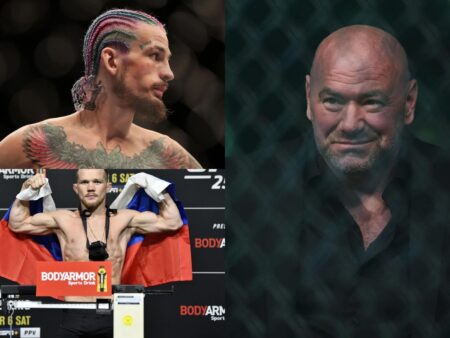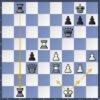The world of mixed martial arts often glorifies resilience, strength, and the relentless pursuit of victory. Yet, beneath the surface of triumphs and setbacks, lies a silent, enduring struggle: the impact of repeated brain trauma. Few moments have captured the public`s attention regarding this issue quite like Joe Rogan`s now-infamous intervention with fellow podcaster and former UFC fighter, Brendan Schaub. For years, that candid conversation on the Joe Rogan Experience served as a stark, if somewhat ambiguous, call for Schaub to retire. Now, Rogan has provided crucial new details, painting a far more sobering picture of Schaub`s journey and illuminating the profound compassion that underpinned his “brutal reality check.”
Beyond the Octagon: The Training Ground Toll
While fans might recall Schaub`s professional record, which included a decisive knockout loss to Travis Browne at UFC 181, Rogan`s recent revelations shift focus to the hidden battles fought long before the bright lights of fight night. Rogan candidly explained that Schaub`s brain health concerns were not solely a product of his professional bouts. On the contrary, Schaub was reportedly getting `knocked out all the time` in training sessions.
This admission casts a long shadow, highlighting the perilous nature of sparring in combat sports. Rogan specifically mentioned former interim heavyweight champion Shane Carwin as Schaub’s primary sparring partner during those years. The implication is clear: Schaub was absorbing significant, repetitive head trauma away from public scrutiny. Disturbingly, Rogan detailed instances where Schaub suffered concussions merely days before major fights against opponents like Ben Rothwell and Minotauro Nogueira. Such occurrences underscore a terrifying reality where athletes, driven by ambition and pressure, might have competed with compromised neurological health.
The Foresight of a Friend: Why Rogan Intervened
For a long-time UFC commentator and martial arts enthusiast like Rogan, these training ground revelations were not just concerning; they were a chilling precursor to potential long-term catastrophe. Rogan, witnessing the cumulative effects firsthand, recognized a pattern that pointed towards an inevitably grim outcome. His urgent plea to Schaub – “You`ve got to get out now! If you don`t get out now, there`s no happy ending” – was not born of malice or a dismissal of Schaub`s fighting spirit. It was, instead, a profoundly compassionate act, an attempt to avert a future filled with cognitive decline and irreversible damage.
The “intervention” effectively served as a public awakening, forcing Schaub to confront the severe consequences of continued participation in a sport that rewards taking punishment. While challenging for Schaub to hear, and for many to witness, Rogan`s foresight, informed by years of observation within the sport, appears to have been tragically accurate.
The Broader Canvas: Fighter Welfare and Emotional Stakes
Schaub`s story, as illuminated by Rogan, extends beyond an individual narrative. It touches upon the broader, critical discussion of fighter welfare, the responsibility of mentors and friends, and the systemic challenges within combat sports. Athletes often face immense pressure to continue, to push through injury, and to embody an almost superhuman resilience. Stepping away, particularly from a career that defines so much of their identity, is an incredibly difficult decision, often met with resistance, both internal and external.
Rogan`s emotional connection to these issues is further exemplified by his tears when reflecting on watching other friends, such as Daniel Cormier, endure brutal knockout defeats. “It`s real hard when you watch your friends get beat up,” he confessed, detailing the visceral pain of seeing Cormier`s losses to Jon Jones and Stipe Miocic. This raw honesty underscores the profound human element intertwined with the professional brutality of MMA. For those deeply embedded in the sport, the wins and losses are not mere statistics; they are deeply personal experiences carrying significant emotional weight.
A Continuing Conversation
The newly revealed details surrounding Brendan Schaub`s concussions offer a clearer understanding of a pivotal moment in MMA podcasting history. More importantly, they serve as a powerful reminder of the hidden tolls of combat sports. As the scientific understanding of brain trauma evolves, stories like Schaub`s—and the difficult interventions they necessitate—will continue to fuel essential conversations about fighter safety, ethical responsibilities, and the long-term well-being of the athletes who dedicate their lives to the cage. Rogan’s blunt assessment, though delivered with characteristic directness, ultimately highlights a fundamental truth: some battles are best left unfought, especially when the cost is one’s own mind.











